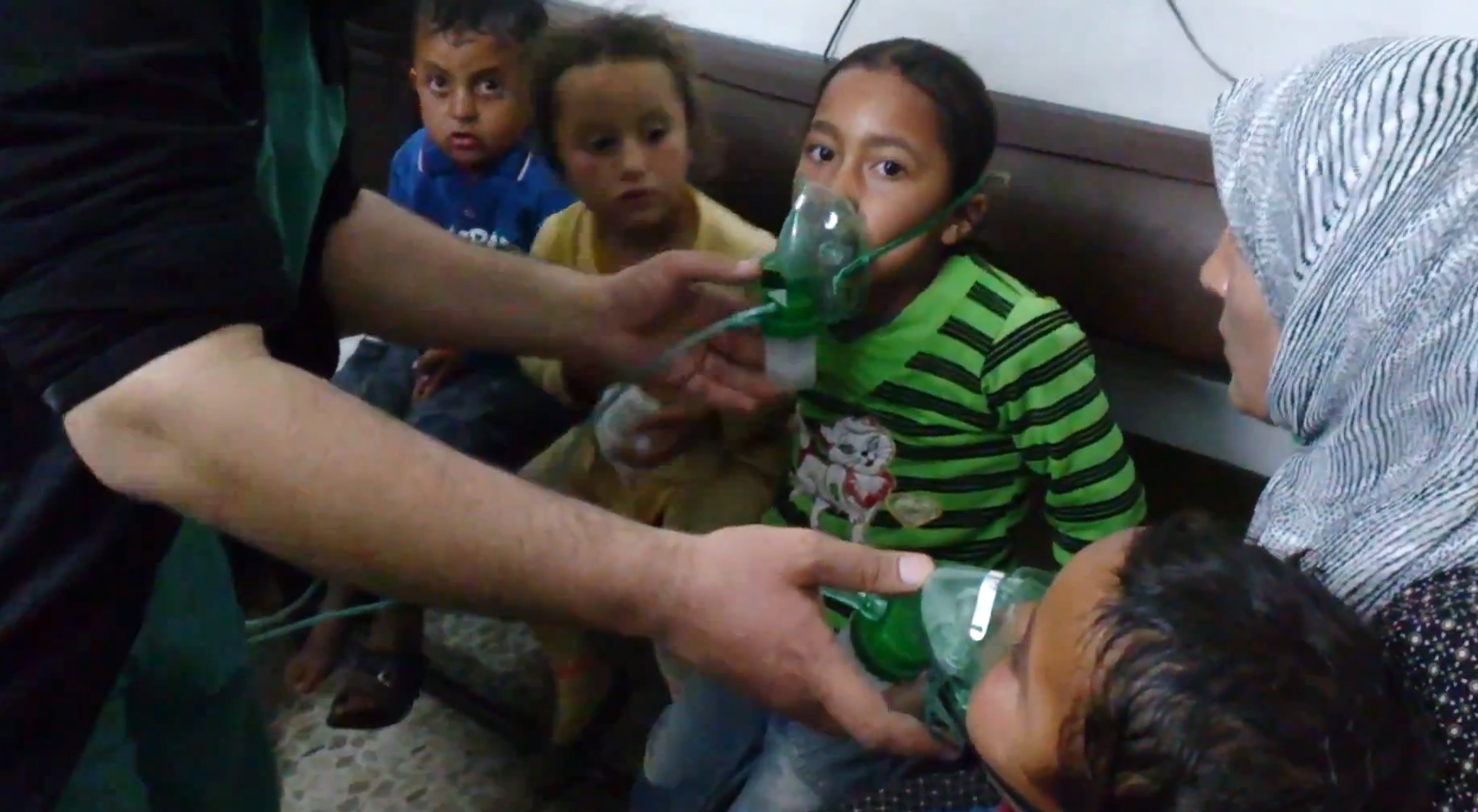BEIRUT — Syrian government forces have attacked rebel-held areas with poisonous chlorine gas in recent weeks and months, leaving men, women and children coughing, choking and gasping for breath, according to Associated Press interviews with more than a dozen activists, medics and residents on the opposition side.
Syria flatly denied the allegations, and they have yet to be confirmed by any foreign country or international organization. But if true, they highlight the limitations of the global effort to rid President Bashar Assad’s government of its chemical weapons.
Witnesses near Damascus and in a central rebel-held village told the AP of dozens of cases of choking, fainting and other afflictions from inhaling fumes that some said were yellowish and smelled like chlorine cleanser. Some of those interviewed said they believe the gas was responsible for at least two deaths.
They said the fumes came from hand grenades and helicopter-dropped “barrel bombs,” which are crude containers packed with explosives and shrapnel.
Activists have posted videos similar, though on a far smaller scale, to those from August’s chemical weapons attack near Damascus that killed hundreds of people and nearly triggered U.S. airstrikes against Syria. The new footage depicts pale-faced men, women and children coughing and gasping at field hospitals.
The U.N. Security Council called for an investigation Wednesday. Council members expressed “grave concern” over the allegations, said Nigeria’s U.N. Ambassador U. Joy Ogwu, council president.
It’s an accusation that carries high stakes, and the Syrian opposition has an interest in pushing such claims in hopes of spurring the world to take stern action against Assad, who has been locked in a civil war for three years and faces a Sunday deadline for handing over all his chemical weapons for destruction.
Chlorine is a potentially lethal chemical with a multitude of ordinary civilian uses, including laundry bleach and swimming-pool disinfectant. In high concentrations, it can attack the lungs and asphyxiate victims.
While chlorine was first deployed on the battlefield in World War I, it is no longer officially considered a warfare agent and is not among the chemicals declared by Syria. It is not as effective at killing as sarin — the nerve agent that was apparently used last summer — and experts say it is difficult to achieve high concentrations of chlorine by dropping it from the air.
Still, any toxic chemical is considered to be a chemical weapon if used for military purposes. Consequently, Syria’s use of chlorine-filled bombs, if confirmed, would be a violation of the chemical weapons treaty that Assad’s government signed last year as part of a deal to hand over its stockpile.
On Wednesday, Syria’s U.N. Ambassador Bashar Ja’afari said his government categorically denied the use of chlorine gas. Ja’afari further disputed that chlorine gas could be categorized as a chemical weapon, saying “it is a mundane substance used for bleaching clothes in the laundry or disinfecting swimming pools.”
U.S. State Department spokeswoman Jen Psaki said Monday that officials were still trying to determine what happened. On Sunday, French President Francois Hollande told Europe 1 radio station there were “elements” suggesting recent use of chemical weapons, but no proof.
Both countries bluntly accused the Syrian government of using sarin against civilian areas in the August attack near Damascus.



